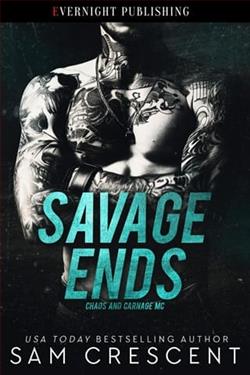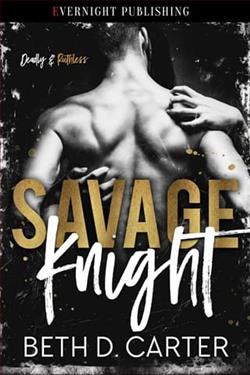Page 13 of Connected
“And you never returned?”
Keaton’s instinct was to say that he had no reason to go back, which wasn’t a lie. But it also wasn’t the whole truth, and he was so damned tired of hiding. Over forty years now, and he’d never toldanyonewhat he was. Not his parents. Not his shrinks. Not any of the men who’d briefly shared his bed.
Fuck it.
“When I was there, I… sensed something.”
“What do you mean?” Owen seemed intrigued by the admission, not angry.
“I can….” This was hard. Keaton tried to find the right words. “I felt fear. Pain. Despair.” He hadn’t been able to pinpoint the source—nobody lived close by since the surrounding land was still owned by mining companies—but the sensations had been so awful that he’d vomited into the scrubby grass. Then, still sick, he’d looked around for someone who was hurt or lost but hadn’t found anyone. Back home, he’d scoured the internet, trying to discover if anyone had gone missing, but again, he didn’t come up with anything.
“Tell me what you mean byfelt.”
“I can’t…. I don’t think there are any terms for this, in English at least. You know how most people have seven senses? Vision, smell, vestibular, and so on? I’ve got eight. I can read other people’s emotions.”
Owen stared at him for a moment and then, to Keaton’s considerable surprise, simply nodded. “So that’s why Townsend tried to recruit you.”
“Huh?”
“An empath could make a useful agent.”
And just like that, Keaton had to blink back tears. Because not only had he just bared his soul, but Owen had reacted as if it was no big deal. He hadn’t been repulsed or horrified. In fact, he’d pointed out a potential positive aspect of Keaton’s talent. God, to be accepted so easily! Keaton had never expected that.
“How strong are your abilities?”
“Uh… strong?”
“Andthat’swhy you moved out to the sticks. Being around others is rough for empaths.”
“Yes,” Keaton whispered.
“Also explains the substance abuse. It’s easier to block other people when you’re high, right?”
Keaton put a hand to his mouth until he was certain a sob wouldn’t escape. “How do you know all of this? Can you— Areyouan empath?” The word felt strange on his tongue.
Owen made a face and shook his head. “I’m an okay agent, but that’s because I work hard at it and don’t do much else. I have no special talents.”
So Keaton’s ability, which he’d always considered a curse, could actually be viewed as a benefit, a gift. “How do you know about… people like me?” Keaton asked.
“Bureau, remember? I’ve had training. I’ve met a few empaths over the years too, although there aren’t many with skills strong enough for anyone else to notice. It might be genetic. You mentioned that your parents both drink—do you think they’re empaths too?”
Keaton considered this. His mother never seemed to give a shit about anyone except herself, but she was skilled in manipulating others. She knew exactly how to play people to get what she wanted. Maybe that was because she was good at reading emotions. And as for Dad, he mostly liked to party. He was happiest when surrounded by a crowd, preferably an adoring crowd. It could be that he fed off their admiration, sort of like an emotional vampire.
“Maybe,” said Keaton in response.
“If so, they’re probably not as good at it as you are.”
This was a lot to take in, and Keaton’s own emotions—which he tended to neglect—were all over the place. He took a big gulpof iced tea and looked Owen in the eyes. “What will you do with me now that you know my secret?”
Owen blinked. “Do?”
“Is there a secret lab? An Arkham Asylum or dungeon? Or will you just….” He made a cutting motion across his own throat.
“None of those.” Owen was somewhat bewildered. “Dude, the Bureau knew you were an empath twenty years ago. Or Townsend did, at least. And when you turned down his offer, he simply let you go. He told me he was disappointed, but he didn’t round you up or anything.”
That was an excellent point. But it still didn’t make sense. “I thought your mission was to eliminate, um, supernatural creatures.”
Owen snorted and leaned back in his chair. “Okay. First off, we don’t use the term supernatural. Because talents like empathic ability, precognition, seeing dead people, they’re perfectly natural. We just haven’t studied them enough to understand them yet. And using that term also leads to attitudes of othering instead of acceptance. We don’t condone exclusionary language.”















